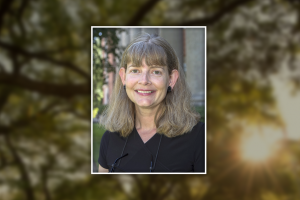Centenary professor Lisa Nicoletti to speak on Anne Frank research

SHREVEPORT, LA — Dr. Lisa Nicoletti, professor of art history and visual studies at Centenary, will present a lecture entitled “Preserving the Memory of Anne Frank” at Shreveport’s First Presbyterian Church on Wednesday, October 11 at 6:00 p.m. The event will be held in the First Presbyterian gym/lecture hall and is free and open to the public.
Nicoletti has worked in Holocaust studies for nearly two decades and has met and traveled with Holocaust survivors, rescuers, and educators in the Netherlands, France, Germany, Austria, Poland, the Czech Republic, and Israel. She has incorporated her research and discoveries into courses for Centenary students since 2001 and has brought several distinguished Holocaust scholars to campus for lectures and residencies.
Since 2010, Nicoletti has been particularly invested in working to reveal an honest portrait of Anne Frank and her family through an examination of more than 6,000 Frank family photographs available at the Anne Frank House museum in Amsterdam. Nicoletti and Anne Frank House researchers have painstakingly analyzed the photographs to determine when they were taken, and by whom. Some of their discoveries contradict the popular historical narrative about the Frank family’s imagery and thus have caused some controversy, but Nicoletti’s experience of working in Holocaust studies has convinced her that, because of Holocaust denial that first started with the Nazis, historians must be extremely accurate in what they claim.
Nicoletti’s lecture at First Presbyterian is part of the church’s “University of First Presbyterian” series that provides short courses for adults on a variety of issues taught by experts in the field.
More information about Nicoletti’s research is available at centenary.edu/news.
